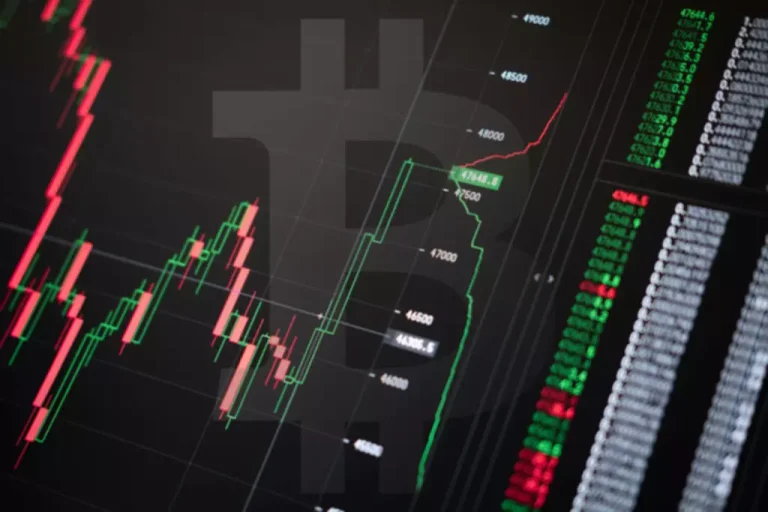Non-custodial wallets are typically used extra by skilled crypto traders who need full control over their belongings or those that are storing large quantities of crypto at a time. They are often seen as safer, since you may be solely in command of preserving the keys protected, not a third party. Custodial wallets are a kind of crypto pockets during which a third party, normally a crypto trade, manages your personal keys. Storing your digital property is an important a part of your crypto journey, and non-custodial wallets have gotten more prevalent as the field of decentralized finance continues to growth. MetaMask, Belief Wallet, and MathWallet are non-custodial wallets that accept the commonest and well-liked crypto assets.
The non-custodial pockets doesn’t rely on the KYC policy, so the person doesn’t should verify their identification to proceed with the transactions, displaying their full ownership over their funds. The custodial pockets is less safe than its non-custodial counterpart, contemplating its vulnerability to cyberattacks. Hackers can assault the centralized servers and procure entry to multiple Initial coin offering accounts. A non-custodial pockets doesn’t require an middleman; transactions occur immediately on the blockchain.
Send And Receive Crypto
You might be interested in how to determine on the right wallet type per enterprise wants. It’s time to discuss probably the most appropriate circumstances to use custodial and non-custodial cryptocurrency wallets. A pockets where the cryptocurrency holder is the one particular person to have entry to the wallet’s private keys.
- Belief Pockets is an open-source and decentralized crypto pockets software that gives customers a variety of options to buy, promote, and store digital assets.
- However do not neglect that with these wallets, you may be totally answerable for preserving your seed phrase and non-public keys secure.
- A self-custodial pockets, or non-custodial pockets, is a decentralised cryptocurrency pockets that allows customers to manage their funds without third parties.
- Both introduce distinctive approaches to handling funds, such as the client’s full possession of the personal keys versus the custodian’s.
- You go to the “Swap” tab, choose two coins – like ETH to SOL – across its 30+ supported blockchains, and type the quantity.
The major distinction lies within the degree of control and safety duty. Custodial wallets offer a hands-off method to safety, with the provider implementing measures to protect consumer assets. Non-custodial wallets, whereas providing most management, place the onus of safety completely on the person, which can be both empowering and daunting. Safeguard your crypto wallet by employing strong and distinctive passwords, and bear in mind to enable two-factor authentication for added security. For hardware wallets, maintain them in a safe place and hold your restoration phrase non-public.
Nonetheless, your funds are solely as secure as the non-public key required to access and send the coins. When you work together with crypto, there’s no central authority to attraction to if you lose your funds, so it’s most probably gone endlessly. First be absolutely certain to create a back-up of the 12-word restoration phrase, if you lose this phrase you will not be able to entry your funds in the chance that your device is misplaced or stolen. With non-custodial wallets, you’ll find a way to easily send or obtain crypto from anyplace on the earth and transfer your crypto belongings throughout totally different wallets by importing and exporting your pockets keys.
Phantom Pockets Evaluation 2025: Is It Safe & Worth It?

WeFi’s account holders can spend utilizing digital cards and smart pockets transactions, with out ever handing over control of their funds to an intermediary. The clear nature of the blockchain ensures full accountability with out https://www.xcritical.com/ compromising person privateness. With non-custodial banking, the mixture of digital wallets, personal keys, and sensible contracts give you complete possession and management of your property. In addition, you may have enhanced privateness and security, because of superior cryptographic encryption and distributed ledger technology. Whereas non-custodial wallets are usually safer than custodial ones as they’re much less vulnerable to hacks, they aren’t fully risk-free.
Protecting this phrase and maintaining it confidential is crucial, as anybody who possesses it may possibly entry your property. In a non-custodial wallet, the duty to protect your cryptocurrencies falls entirely on you. You should ensure your keys are secured with robust passwords and proper backups. A working example is a 2017 incident the place a man in Germany lost the password to his pockets containing 7,002 Bitcoins.

These transactions are essentially censorship-resistant, because the user controls the personal key. Nevertheless, non-custodial wallets usually are not as simple to make use of as custodial wallets. When utilizing a non-custodial pockets, customers must remember that if they lose the non-public key, the coins in the pockets are essentially misplaced eternally.
To defend your property, often update your software program and be cautious of phishing makes an attempt or suspicious links. These wallets are user-friendly and require minimal interaction with the technical aspects of blockchain know-how. A crypto pockets is a software what is non custodial wallet that enables customers to retailer, send, and obtain cryptocurrencies by managing their non-public and public keys. With non-custodial wallets, a crypto person has complete management over their personal key, along with their funds. Non-custodial wallets are usually a bit extra technically advanced than custodial wallets, so they’re generally extra favored by skilled crypto users.
Nonetheless, they do require a bit more technical knowledge in comparability with centralized options. If you select to make use of a non-custodial wallet, you’re solely responsible for defending your non-public keys. If, for any purpose, you lose access to them, then you lose entry to your funds, and there is nothing the wallet provider can do that will assist you retrieve them – bear in mind, it’s just an interface. If you want having full management over your property, or just need to use blockchain know-how to work together with DeFi functions, you want to think about a non-custodial pockets. Nonetheless, if you are looking for a service provider that can deal with your storage wants whilst you trade or make investments, you’ll find a way to look for dependable custodial pockets service suppliers.

Coinbase launched its own non-custodial pockets in 2018, and it has become a well-liked selection among crypto buyers owing to its familiar, simple user experience. It is more suitable with a wider vary of blockchain networks than the above-mentioned wallets. Non-custodial wallets don’t require the outsourcing of trust to an institution, so no institution can refuse to complete transactions. This is a public-facing knowledge point like your own home handle and is used to receive inbound cryptocurrencies and encrypt outbound transaction knowledge. When depositing crypto right into a wallet, you simply input the public key because the deposit handle. This is much like utilizing your deal with in a service such as Venmo or CashApp.